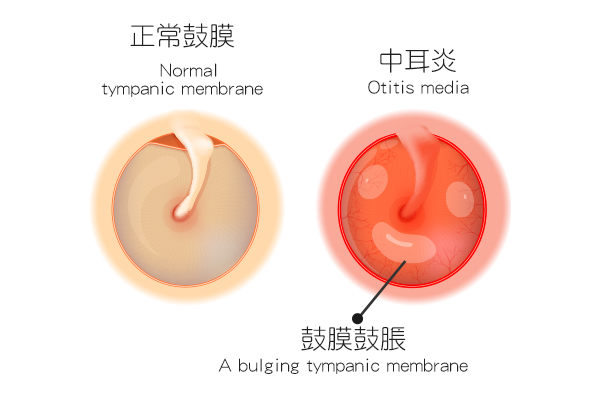Middle ear infection

What is middle ear infection?
A middle ear infection, also called otitis media, occurs when a virus or bacteria cause the area behind the eardrum to become inflamed. Symptoms may occur in one or both ears. This can cause hearing problems and other serious complications. Ear infections may be more common in children than in adults.

There are three main types of ear infections
- Acute otitis media (AOM)
- Chromic otitis media (COM)
- Otitis media with effusion (OME)
Symptoms
- Headache/ dizziness
- Ear pain
- Slight hearing loss
- Fever
- Bloody discharge from the ear
- Decrease appetite, diarrhea
How can cause an middle ear infection?
| Acute otitis media (AOM) | It originates from a cold or other respiratory problem. Meanwhile, bacteria and viruses can cause middle ear infections. |
| Chronic otitis media (OM) | It is because a persistent perforation of the tympanic membrane or the presence of a cholesteatoma of the middle ear |
| Otitis media with effusion (OME) | It typically are associated with fluid accumulation in the middle ear, signs or symptoms of infections in the ear |
Diagnosis
Your doctor will get your medical history to make a proper diagnosis
- Use an otoscope to get a detailed look at your outer ear and your eardrum
- Conduct a simple hearing test
- Tympanometry test: determine if the eardrum is ruptured
- Perform X-ray or CT Scan
What is the best way to treat a middle ear infection?
| Acute otitis media (AOM) | Your doctor may prescribe antibiotics and other prescriptions if your symptoms do not go away. |
| Chronic otitis media (OM) | Your doctor may suggest to perform a surgery called myringotomy if your eardrum is likely to burst. |
| Otitis media with effusion (OME) | Your doctor may suggest a surgical procedure - tympanostomy to insert tiny tubes in ear. The tubes allow air and fluid to drain from the middle ear. |
More : Ear canal infection - How to get water out of your ears?
How to prevent middle ear infection?
- Avoid smoky environments
- The outer ear properly cleaned and dried after swimming or bathing
- Manage your allergies by avoiding triggers and keeping up with allergy medications
*The above information is for reference only, please consult your doctor for detail.

 3405 8288
3405 8288
